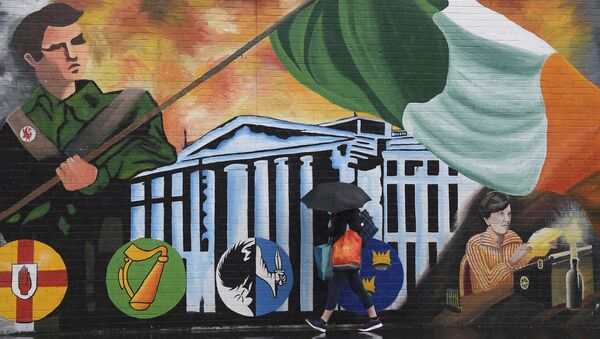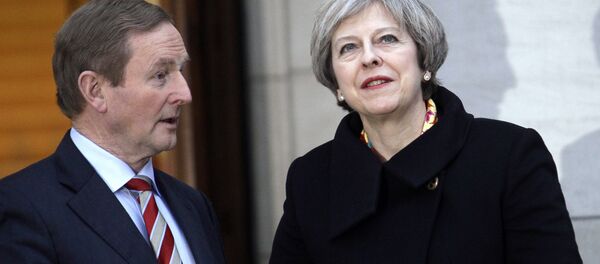In the June 23, 2016, referendum on British membership of the EU, 52 percent of the UK voted to leave, but 55.8 percent in Northern Ireland and 62 percent in Scotland voted to remain, leaving Brexit Secretary David Davis with even more of a conundrum than he needed.
Both Scotland and Northern Ireland are seeking a Brexit that effectively maintains something similar to the status quo, with Scotland threatening a second referendum of Scottish membership of the UK.
Northern Ireland — which is struggling to form a new administration following snap elections, March 2 — has a special case to argue, in that the issue is intrinsically linked to the Northern Ireland Peace process, which ended decades of violence, bombings and murders.
Under the peace process, Northern Ireland now has a devolved administration which relies on a balance of power between unionists and the republicans. The previous power-share between the Democratic Unionist Party (DUP) and Sinn Fein broke down over a botched renewable energy scheme, which cost the administration over US$600 million.
Now all the parties in Northern Ireland have just two weeks to form an administration or facing direct rule from London, or another election. The political uncertainty is compounded by the issue of the border with Ireland, which will remain a member of the EU, creating a politically charged question over border controls.
Most recent opinion polls have shown a majority of people in Northern Ireland want to remain part of the United Kingdom.
The latest IPSOS-MORI poll, September 2016, showed 63 percent wanting to remain in the UK, with just 22 percent supporting a united Ireland.
"Brexit will be a disaster for the economy, and a disaster for the people of Ireland. A referendum on Irish unity has to happen as soon as possible. [The British Government] are continuing to refuse to listen to the majority view and they are refusing to honor their commitments and agreements," Sinn Fein's leader in Northern Ireland Michelle O'Neill told reporters in Belfast.
People should have their say on unity — @moneillsf https://t.co/4o9OwgY8xg pic.twitter.com/djvxfz7OnT
— Sinn Féin (@sinnfeinireland) 14 March 2017
The issue was brought up in parliament, March 14, when Nigel Dodds, the MP for Belfast North asked if there could be a "border" poll for Northern Ireland.
"The Secretary of State for Northern Ireland has looked at this issue and it is not right to have a border poll at this stage. What we should all be focusing on is bringing the parties together to ensure that we can continue to see the devolved Administration in Northern Ireland working, as they have done, in the interests of the people of Northern Ireland. We want to see that devolved Administration being formed, and that is what all the parties should be looking for at the moment," May said.



